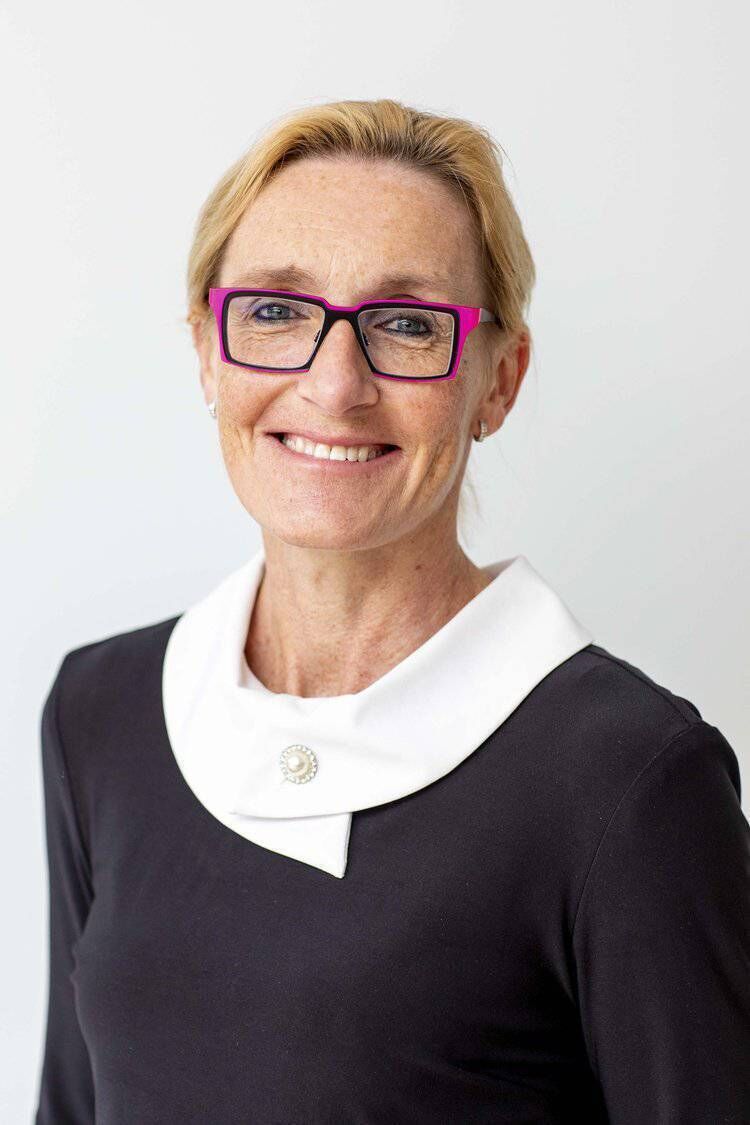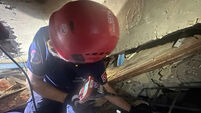Ireland again misses target for bowel cancer screening as numbers taking lifesaving test drop

Tom McHugh: 'I was fit and healthy. I had no symptoms whatsoever and yet bowel cancer was there.'
Urgent calls have been made for higher uptake of bowel cancer screening as Ireland's low targets for the lifesaving test were missed again in 2024.
The alarm is being raised because this cancer is the second most common cause of cancer deaths in Ireland.
Only 41% of eligible people took the HSE Bowelscreen test last year, the Irish Cancer Society said. This is down from an already low 45% the year before compared to the recommended target of 65%, according to HSE data.
The HSE Bowelscreen system invites everyone aged between 59 and 70.
“Screening saves lives," said Steve Dempsey, director of advocacy and communications with the Irish Cancer Society. “It can detect bowel cancer before signs or symptoms are even present, and that means better outcomes and less harsh treatment pathways.”
He added the charity is "deeply concerned that the uptake in lifesaving bowel cancer screening is going backwards”.
He welcomed the expansion to include 70 year olds from Tuesday, but cautioned: “Without greater uptake, eligibility means little.” People can self-register for screening. The system also uses data from the Department of Social Protection.
Tom McHugh, 64, was diagnosed with bowel cancer in July 2023. He had not been on the register and only contacted Bowelscreen after his younger wife received her test kit.
“I am proof that screening works, and for anyone hesitating, I would strongly encourage you to please participate,” he urged.
“I was fit and healthy. I had no symptoms whatsoever and yet bowel cancer was there. And it would have gotten a lot worse had it not been caught early through the screening programme.”
He said it is “quite worrying” so many people are not taking the test.
Meanwhile, new Irish research found changing how the tests are sent out could increase uptake by 6%. Bowelscreen invites people and individuals must then request a home test kit. This extra step confirms consent and avoids wasting kits.
However, the Royal College of Surgeons Ireland found people were more likely to take part if the kit was posted directly to them. They also saw an increase if a letter answering frequently-asked-questions was included.
Dr Nicholas Clarke said: “By making the process easier and addressing concerns upfront, we can save more lives.”

BowelScreen programme manager Hilary Coffey Farrell supported the study.
“We are focused on working to remove any possible barriers to bowel cancer screening, particularly among men, and those in socioeconomically disadvantaged areas, where participation remains lowest,” she said.
Professor Barbara Ryan, consultant gastroenterologist at Tallaght University Hospital, and clinical professor at Trinity College Dublin called on people to know the signs of bowel cancer.
“What we are particularly asking people to look out for is persistent changes – changes that last longer than three weeks,” she said. Symptoms can include changes in toilet habits, blood in poo, weight loss, pain or bloating.










